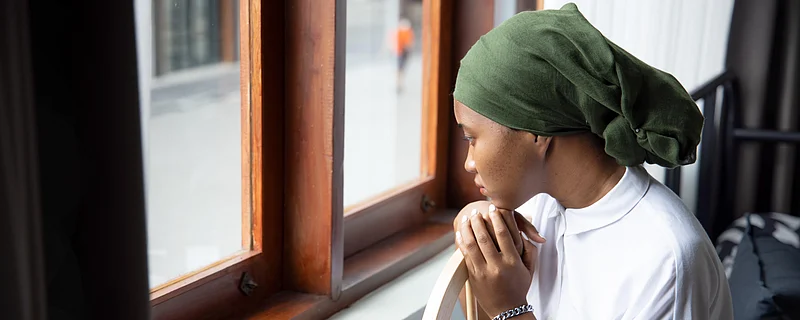Get Healthy!

- By Robert Preidt HealthDay Reporter
- Posted April 27, 2022
High Medical Bills Tied to Worse Outcomes for Younger Cancer Survivors
U.S. cancer survivors under age 65 with medical-related financial struggles have an increased risk of early death, a new study finds.
"Our findings show the need to address financial hardship to ensure that cancer survivors do not delay or forgo necessary care because they cannot afford it," said lead author Dr. Robin Yabroff. She is scientific vice president of health services research for the American Cancer Society (ACS).
For the study, Yabroff and her colleagues analyzed data from more than 25,000 cancer survivors who took part in a nationwide health survey between 1997 and 2014, as well as survey-linked death data through 2015.
Nearly all respondents aged 65 and older had health insurance through Medicare, while younger adults were more likely to be uninsured, the investigators found.
In both age groups, survivors with medical financial hardship - defined as problems affording health care or delaying or forgoing any health care due to cost in the past year - had a higher death rate than those without medical financial hardship.
After adjusting for health insurance coverage, there was a weaker association between medical financial hardship and risk of death among cancer survivors under 65, the study found. But adjusting for supplemental Medicare coverage had little effect among older survivors.
The findings were published April 20 in the Journal of the National Cancer Institute.
Yabroff said the findings highlight the protective effects of Medicare and the importance of comprehensive health insurance coverage in reducing medical financial hardship for cancer survivors under age 65.
"Efforts to address financial hardship as part of oncology practice and survivorship care are needed," she said in an ACS news release.
The American Cancer Society Cancer Action Network, a lobbying arm of the ACS, is urging Congress to pass a number of policies to make health coverage more affordable.
Those measures include: permanently increasing subsidies to buy marketplace health coverage; expanding Medicaid in the 12 states that have yet to do so; and capping out-of-pocket prescription drug costs in Medicare Part D.
More information
The U.S. National Cancer Institute has more about the financial struggles of cancer patients.
SOURCE: American Cancer Society, news release, April 20, 2022







